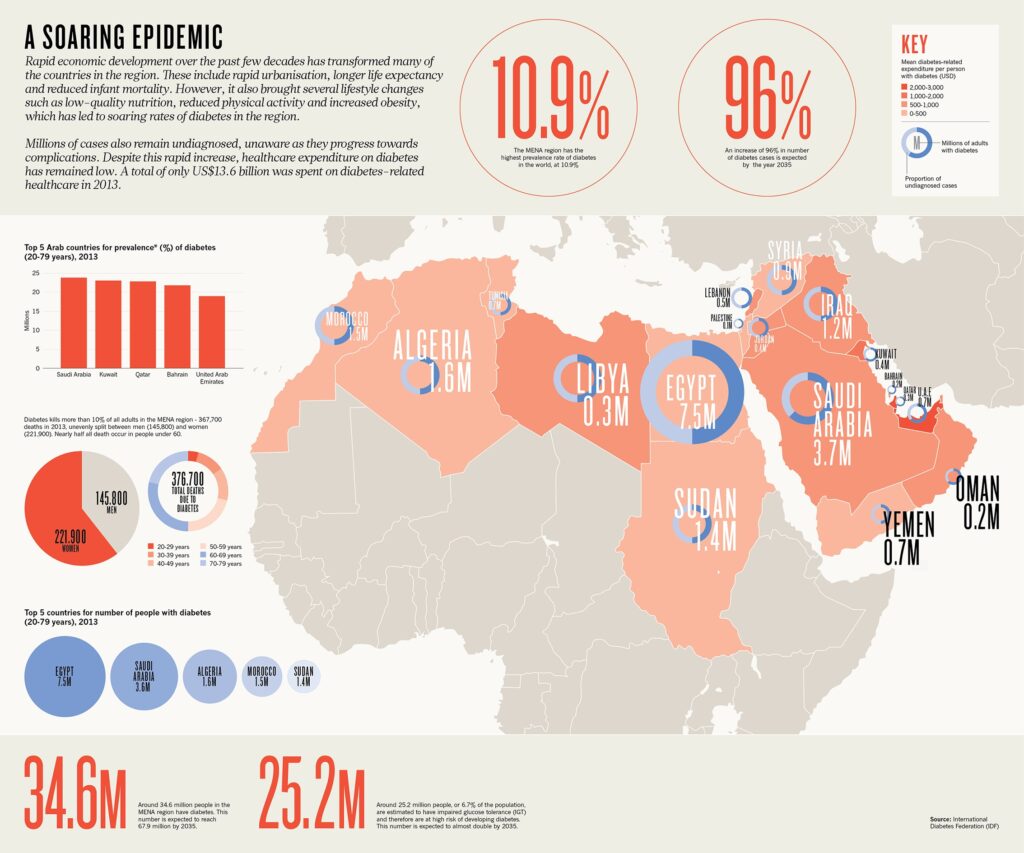The Missing Data: How the Exclusion of Arabs from the Census Undermines Equitable Healthcare

Photo Credits: Bloomberg
By: Joanna Sawtari / Arab America Contributing Writer
Introduction
Clinical research is an evolving field, gathering data from various regions within the nation in its pursuit of answers to important questions. Within this research, many statistics are collected, including information about the racial backgrounds of the participants which helps determine how the findings may affect specific groups of people. However, it is evident that one particular group, despite their significant population of 3.5 million in the United States, are absent from this data. The exclusion of Arab Americans from the US census results in substantial gaps in data, potentially hindering the accuracy of medical research. This raises concerns about the impacts of excluding Arabs and prompts people to consider how conducting research specifically tailored to Arabs could change the outcomes and the overall healthcare system.
Is Everyone Excluded?
Arabs are included in clinical research, however, they are categorized as “white.” This means that there’s no way to tell the actual number of Arabs included in the research, preventing a clear understanding of the impact of the study on each group. For example, one cannot claim a glioblastoma study that collected data from every group on the census was completely diverse and inclusive. Arabs are not explicitly mentioned on the census, so if there were 1000 trials per group, you still cannot determine how many of those were Arabs. It could be 3 Arabs against 1000 people from each other group, which emphasizes this clear disparity.

Diabetes in the Arab World: A Soaring Epidemic / Photo Credits: Nature Middle East
How Would A Separate Category Be Beneficial?
Outside of clinical research, it is important to acknowledge that Arabs deserve their own category due to their unique traditions and backgrounds. There is a stark difference between the “white” label and the Arab category, as all Arabs look different, speak different dialects of Arabic and have their own cultural identity. Thus, their heritage and contributions should be acknowledged through a separate category on the census.
Keeping the diversity of Arabs in mind, it is crucial to note that these diverse attributes aren’t just physical and cultural attributes, but they are also biological attributes that can be seen in genetic variations. Arabs have genetic variations that could affect drug metabolism, so some may be poor metabolizers while others aren’t.
In the graphic above, the increasing rates of diabetes in the Arab world are displayed. Diabetes is a combination of genetic and environmental factors which continue being prominent through generations of Arabs. A separate category for Arabs would encourage further research on diabetes and how to combat it more efficiently.
Taking All Factors Into Account
There are also environmental and cultural factors that impact their health outcome, from their unique dietary habits to their individual lifestyle factors. By conducting research that’s specific to this group, healthcare providers can make more personalized decisions and improve the strategies that are used towards decision-making and treatment.
Disparities in clinic research continue to articulate that Arabs are their own group of people who deserve the same research and care that everyone else has.
Check out Arab America’s blog here!








